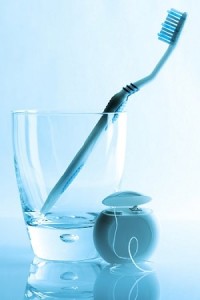
One thing we believe that almost every working American adult has trouble doing is either getting enough sleep or falling asleep altogether. Lack of sleep can probably be found plaguing the majority of the adult population in other parts of the world as well. Frankly, when you take a moment to consider the state of the modern world and the hectic schedules we all keep this common issue is not all that surprising.
Our Modern World of Mental Stimulation
We live in a world where mental stimulation is at an all-time high. Think for a moment what you see each time you drive on the freeway, step into a store, or walk into work. Light, computer screens, bright advertisements, neon signs, billboards, cell phones, and TV are all ever present. There is not a moment, aside from when you are asleep, that an advertisement for something or a bright screen cannot be found within about a ten-foot radius of you. It’s almost relentless.
Don’t believe us? Look around you – wherever you are reading this – right now. Unless you are in a park, chances are there is a magazine somewhere near you, a cell phone, a billboard, etc. All of these things are designed to stimulate the human mind, catch our attention like a lure does a fish. It seems sad, but this is the way business and marketing works.
How is all This Affecting us?
This has been a question many doctors and researchers have taken an interest in. The reason for involves human evolution and how are brains are wired.
Here’s why.
Some millions of years ago our ancestors, the species we evolved from, were living in the wild. This is pretty common knowledge. However, what is less known is the fact that our evolutionary ancestors first started out as scavengers. Fast forward to about 1.8 million years ago we have our first effective weapons (rough axes and cleavers) that could be used for hunting. Even so, much of the food acquired was still done so through scavenging. That being said, our brains, through millions of years’ worth of evolution, have been wired to recognize bright light, i.e. daylight, as a time to be awake and searching for food. If we weren’t we were hungry or possibly dead.
In the modern world, humans don’t have to hunt for food anymore. In fact, there is even a bright light in our refrigerators designed to make reaching for a carton of milk even easier. However, millions of years’ worth of evolution cannot simply be redesigned in the hundred some-odd years it has taken humans to make these advancements. In other words, whether we want to admit it or not, bright lights still wake our minds up to a certain extent. This fact is exactly the premise Dr. Russell Foster, professor of circadian neuroscience at Oxford University, is basing his study on.
Bringing it Back to Health and Dentistry
To make a rather long story short, we’re going to sum the premise of Foster’s study for you; if you are having difficulty sleeping at night try brushing your teeth with the bathroom lights off.
